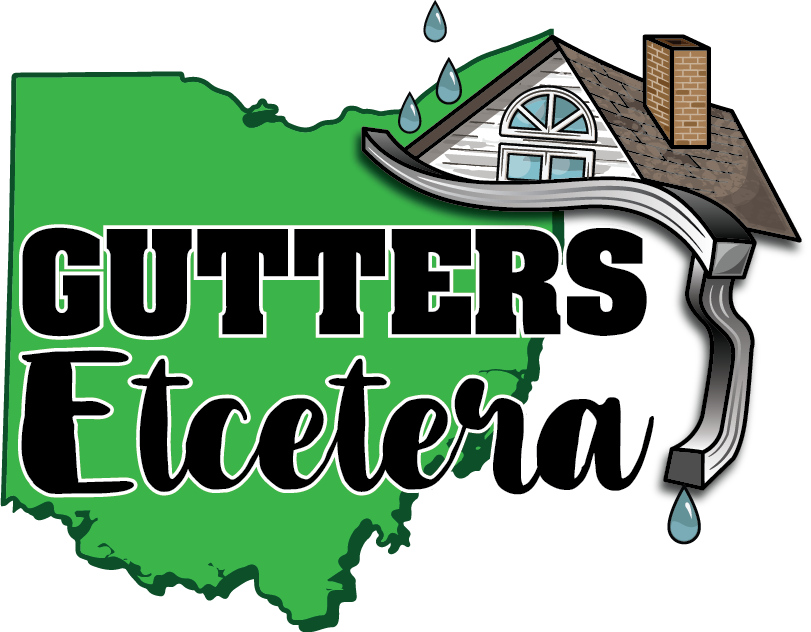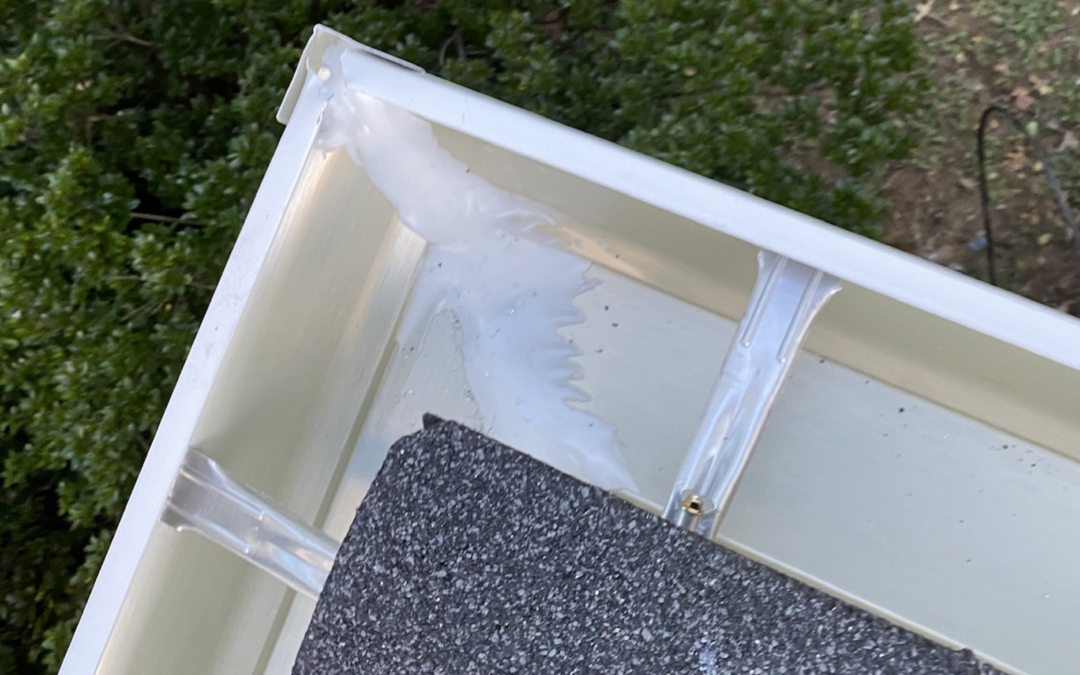Gutters play a vital role in safeguarding your home from water damage, yet they are often overlooked when it comes to regular maintenance. Over time, debris such as leaves, dirt, and twigs can accumulate in gutters, causing blockages that can lead to serious damage to your home’s foundation, roof, and walls. In this blog post, we’ll explore why gutter cleaning is so important and discuss the potential risks of neglecting this crucial task. This informational guide is provided by Gutters Etcetera in Cincinnati, Ohio.
What Gutters Do for Your Home
Gutters are designed to divert rainwater away from your home, protecting the structure from water damage. Without a functioning gutter system, water from rain and snow can seep into your home’s foundation, walls, and roof, causing structural issues and encouraging mold growth. A well-maintained gutter system channels water safely away from these vulnerable areas.
In Cincinnati, where seasonal weather fluctuations are common, the role of gutters becomes even more important. The city experiences heavy rainstorms, particularly in the spring and summer, as well as snow and ice in the winter, all of which increase the likelihood of gutter clogs. Keeping your gutters clean helps ensure that they function properly throughout the year.
Why Regular Gutter Cleaning is Essential
Regular gutter cleaning helps to avoid blockages that can lead to water overflow and other serious issues. Gutters that are clogged with leaves, twigs, and dirt won’t allow water to flow away from your home, resulting in a variety of potential problems. Here are some key reasons why maintaining clean gutters is essential:
1. Preventing Foundation Damage
When gutters are clogged, water tends to pool at the base of your home. This excess moisture can seep into the foundation, causing cracks and weakening the structural integrity of your home over time. Foundation damage can be extremely expensive to repair and may also lead to issues like uneven floors and doors that no longer close properly.
2. Avoiding Roof Damage
Clogged gutters can lead to water buildup on your roof. This stagnant water can eventually cause leaks, leading to damage in your attic, ceilings, and walls. When water seeps into your roof, it can also lead to rot and decay of roofing materials, which may result in costly repairs or even a full roof replacement. Regular gutter cleaning ensures that water is properly channeled off your roof, preventing these issues.
3. Preventing Basement Flooding
Homes with basements are particularly vulnerable to flooding when gutters aren’t functioning properly. When rainwater pools around the foundation due to clogged gutters, it can eventually seep into your basement, causing water damage, mold growth, and even the need for expensive water remediation services. Keeping your gutters clean reduces the risk of basement flooding, protecting both your home and your belongings.
4. Preserving Landscaping
Overflowing gutters can also damage your home’s landscaping. Water that spills over the edges of clogged gutters can erode soil, damage plant roots, and create unsightly puddles in your yard. Regular gutter maintenance can prevent this water damage and help preserve the beauty of your landscaping.
5. Avoiding Pest Infestations
When gutters are clogged with organic debris like leaves and twigs, they can become a breeding ground for pests. Standing water attracts mosquitoes, while debris-filled gutters can provide a cozy home for birds, rodents, and insects. Over time, these pests may make their way into your home, causing even more issues. Clean gutters prevent these infestations by eliminating the moist, sheltered environments that pests seek.
How Often Should You Clean Your Gutters?
For homes in Cincinnati, it’s generally recommended to clean your gutters at least twice a year—once in the spring and once in the fall. This ensures that gutters remain free of debris following the buildup that typically occurs during these seasons. However, if your home is surrounded by trees, you may need to clean your gutters more frequently, particularly in the fall when leaves are falling rapidly.
Heavy storms can also cause debris to accumulate in your gutters, so it’s a good idea to check them after a particularly rainy period. Regular inspections and cleanings can help you catch issues before they become serious problems.
Signs Your Gutters Need Cleaning
In addition to sticking to a regular cleaning schedule, it’s important to recognize the warning signs that your gutters may need attention sooner rather than later. Here are some common indicators that your gutters are clogged:
- Water Overflow: If you notice water spilling over the edges of your gutters during a rainstorm, this is a clear sign of blockage.
- Sagging Gutters: Clogged gutters become heavy with trapped water and debris, which can cause them to sag or pull away from your home’s roofline.
- Water Stains: Dark streaks or stains on the exterior walls of your home near the gutters can indicate that water is overflowing or leaking from the system.
- Plant Growth: If you see grass, plants, or moss growing in your gutters, it’s a sign that organic material has built up to the point where it’s acting as soil.
- Pests Around the Roofline: The presence of birds, insects, or other animals near your gutters can indicate that there’s debris attracting them.
The Risks of Ignoring Gutter Cleaning
Neglecting gutter cleaning can lead to significant damage over time, resulting in costly repairs and putting the safety of your home at risk. Here are some of the potential consequences of ignoring this important maintenance task:
- Roof Leaks: Water that overflows from clogged gutters can pool on the roof, eventually causing leaks and water damage inside your home.
- Foundation Cracks: Excess water pooling around your home’s foundation can lead to cracks, shifting, and structural instability.
- Wood Rot: Water that spills over the edges of clogged gutters can seep into wood surfaces, causing rot and deterioration in fascia boards, siding, and window frames.
- Erosion and Landscaping Damage: Overflowing water can wash away soil, damage flower beds, and lead to erosion around your home.
- Ice Dams in Winter: In the winter months, clogged gutters can contribute to the formation of ice dams, which prevent water from draining properly off the roof and can cause serious damage.
The Long-Term Benefits of Regular Gutter Cleaning
While gutter cleaning might seem like a tedious chore, its benefits far outweigh the effort. Here are some of the long-term advantages:
- Increased Home Value: A well-maintained home with clean gutters is more appealing to potential buyers and appraisers.
- Extended Lifespan of Gutters: Keeping gutters clean reduces wear and tear, helping them last longer without needing to be replaced.
- Lower Repair Costs: Regular gutter cleaning is a preventative measure that can save you from expensive repairs to your roof, foundation, and landscaping.
Should You Clean Your Gutters Yourself?
Many homeowners wonder whether they should clean their gutters themselves or hire a professional. While cleaning your own gutters is possible, it can be a dangerous and time-consuming task. This is especially true for multi-story homes or homes with steep roofs. Additionally, a professional gutter cleaning service can identify potential issues with your gutters that may go unnoticed by an untrained eye, such as small leaks or areas where the gutters are beginning to pull away from the roofline.
Conclusion
Gutter cleaning is an essential part of maintaining your home and preventing serious water damage. By keeping your gutters free of debris, you can protect your foundation, roof, and landscaping from costly repairs and ensure that your home stays in top condition. Whether you choose to clean your gutters yourself or hire a professional service, it’s important to prioritize this task at least twice a year.
For more information on maintaining your gutter system, feel free to consult Gutters Etcetera in Cincinnati, Ohio. Regular gutter cleaning is a small step that can make a big difference in the long-term health of your home.

